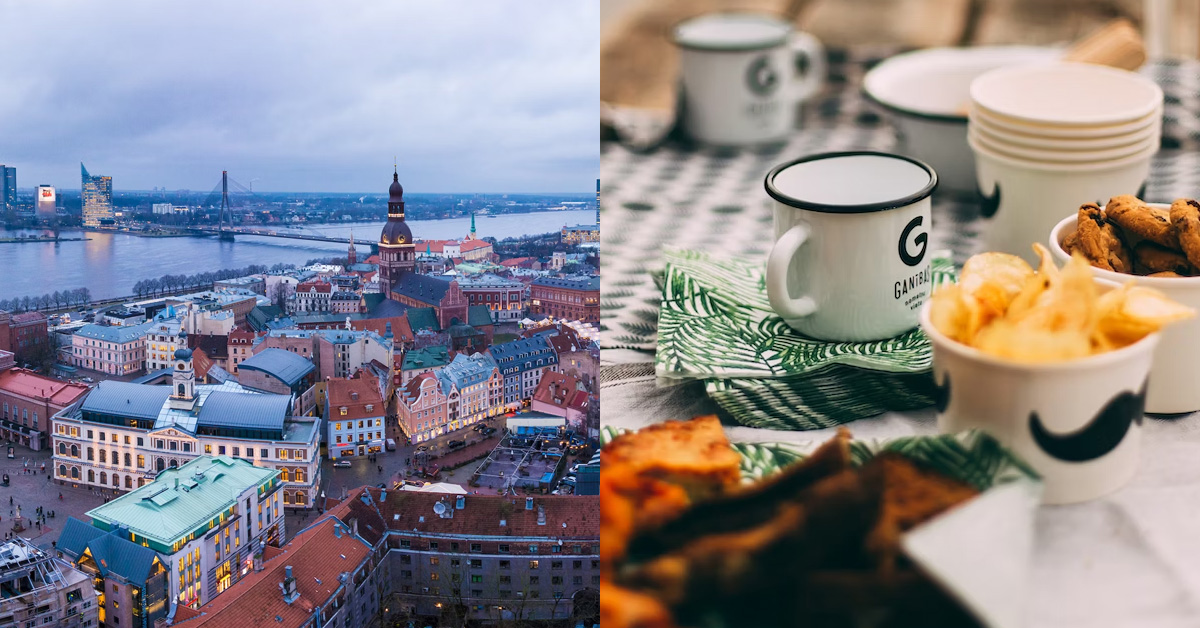Latvian cuisine is a reflection of the country’s rich cultural heritage and natural resources. Located in the Baltic region of Northern Europe, Latvia is known for its vast forests, fertile farmland, and abundant freshwater resources.
These natural resources have played a significant role in shaping the country’s culinary traditions, which are characterized by hearty, wholesome dishes that are perfect for the cold, harsh winters. Latvian cuisine is a fusion of various influences, including German, Russian, and Scandinavian, resulting in a unique blend of flavors and textures.
Latvian cuisine halal or not?
Is Latvian food halal?
Latvian cuisine is not typically halal as it includes pork and other non-halal meats. However, there are some restaurants in Latvia that offer halal options for Muslim customers.
It is recommended to inquire about the ingredients and preparation methods before consuming any food in Latvia.
What kind of food do Latvian eat?
Latvian cuisine is heavily influenced by the country’s agricultural heritage and the surrounding Baltic Sea. Some traditional Latvian dishes include:
- Grey peas and bacon – a staple dish made with boiled grey peas and fried bacon.
- Rye bread – a dark, dense bread made from rye flour.
- Smoked fish – popular varieties include smoked salmon, trout, and eel.
- Potato pancakes – grated potatoes mixed with flour and fried until crispy.
- Sauerkraut – fermented cabbage often served as a side dish.
- Black balsam – a traditional herbal liqueur made with over 20 different ingredients.
- Cranberry kissel – a sweet and tangy dessert made with cranberries and thickened with potato starch.
- Latvian beer – the country has a long history of brewing beer, with many local breweries producing a variety of styles.
Latvian cuisine is hearty and comforting, with a focus on simple, wholesome ingredients.
How can you tell if the food is halal in Latvia?
In Latvia, halal food is not widely available, but there are some halal-certified restaurants and grocery stores in Riga, the capital city.
To ensure that the food is halal, you can look for the halal certification logo or ask the restaurant or store if they have halal options. Y
ou can also check with the Latvian Muslim community for recommendations on where to find halal food.
Is it hard to find halal food in Latvia?
It may be challenging to find halal food in Latvia. Latvia is not a predominantly Muslim country, and therefore, halal food options may be limited.
However, some restaurants and grocery stores in Riga, the capital city, may offer halal food options. It is recommended to do some research and ask locals for recommendations to find halal food in Latvia.
Is Latvian food healthy?
Latvian cuisine is generally considered healthy as it is based on fresh and natural ingredients such as fish, vegetables, and grains. Traditional Latvian dishes often include soups, stews, and salads, which are rich in vitamins and minerals.
However, some dishes may be high in fat and calories, such as pork dishes and pastries. As with any cuisine, it is important to consume Latvian food in moderation and balance it with a healthy lifestyle.
What is Latvian food similar to?
Latvian food is similar to other Baltic and Northern European cuisines, such as Estonian, Lithuanian, Finnish, Swedish, and Danish.
It also shares some similarities with Russian and German cuisine due to historical and cultural influences.
Steps to find halal food in Latvia
Here are some tips to find halal food in Latvia:
- Research halal food options in Latvia: Start by researching halal food options in Latvia. You can use search engines, social media, and online directories to find halal restaurants, grocery stores, and food suppliers in Latvia.
- Check for halal certification: Once you have identified halal food options, check if they have halal certification. Halal certification ensures that the food is prepared according to Islamic dietary laws and is free from any haram (forbidden) ingredients.
- Ask for recommendations: Ask for recommendations from friends, family, or local Muslim communities in Latvia. They may be able to suggest halal food options that are not listed online.
- Read food labels: When shopping for halal food in grocery stores, read the food labels carefully to ensure that the ingredients are halal. Look for ingredients such as gelatin, animal fats, and alcohol, which may be haram.
- Visit halal restaurants: Visit halal restaurants in Latvia and ask the staff about the ingredients used in their dishes. You can also check online reviews to see what other customers have to say about the food quality and halal authenticity.
- Attend halal food events: Attend halal food events in Latvia, such as food festivals and markets, to discover new halal food options and meet other halal food enthusiasts.
- Be aware of non-halal food: Be aware of non-halal food options in Latvia and avoid them. This includes pork, alcohol, and any food that contains haram ingredients.

